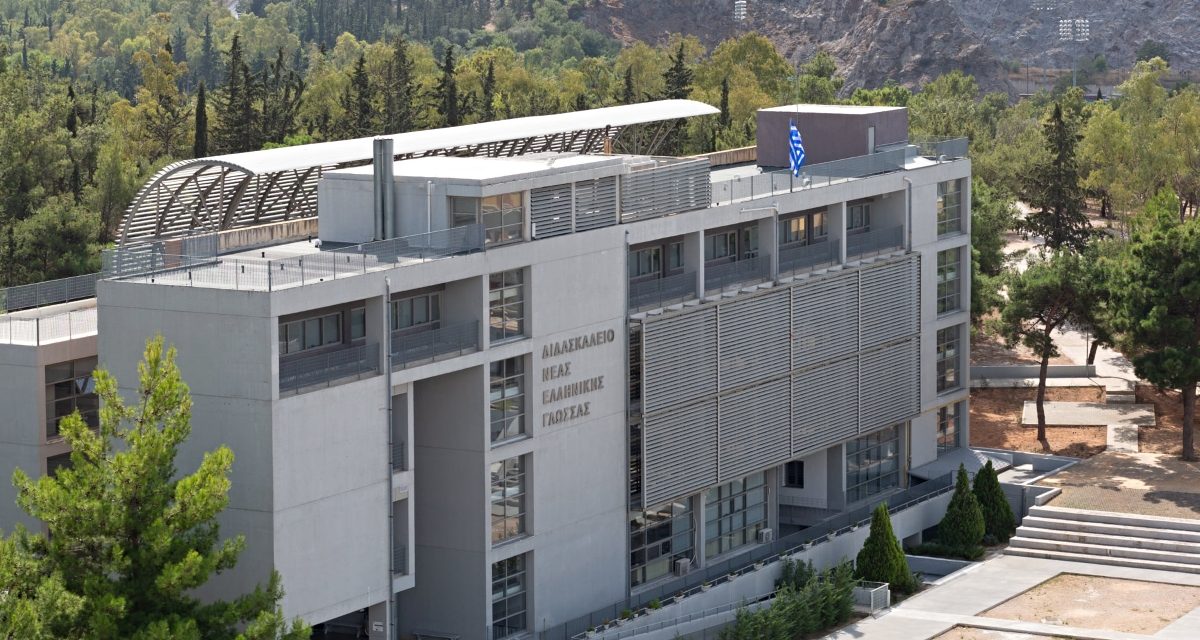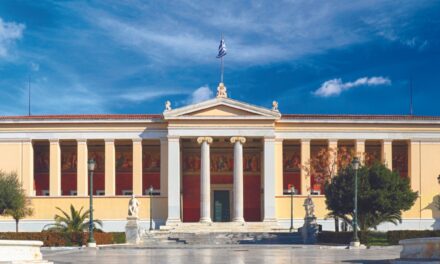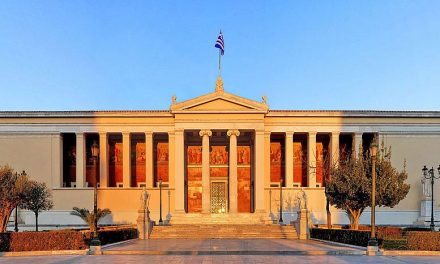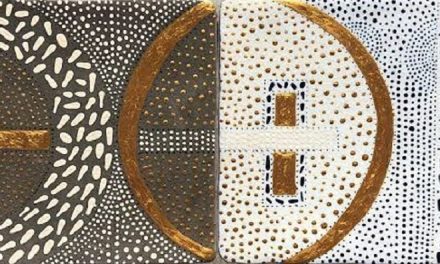The Modern Greek Language Teaching Center of the National & Kapodistrian University of Athens, known in Greek as the “Didaskaleio” is the oldest and largest center in the world for the teaching of the Greek language.
The history of the “Didaskaleio”
The first form of the “Didaskaleio” dates back to the 1950s when the University of Athens decided to start offering lessons of Modern Greek as a second/foreign language, as part of the program of the University’s School of Foreign Languages. The number of students increased exponentially, reaching four-figure numbers by the 1990s.
In 1991, the Interdepartmental Programme for the teaching of Modern Greek as a second/foreign language was established under the educational stewardship of the Department of Linguistics. In 1994 the Interdepartmental Master’s Degree Programme of the Faculties of Philology and of Philosophy, Education and Psychology of the University’s School of Philosophy was established.
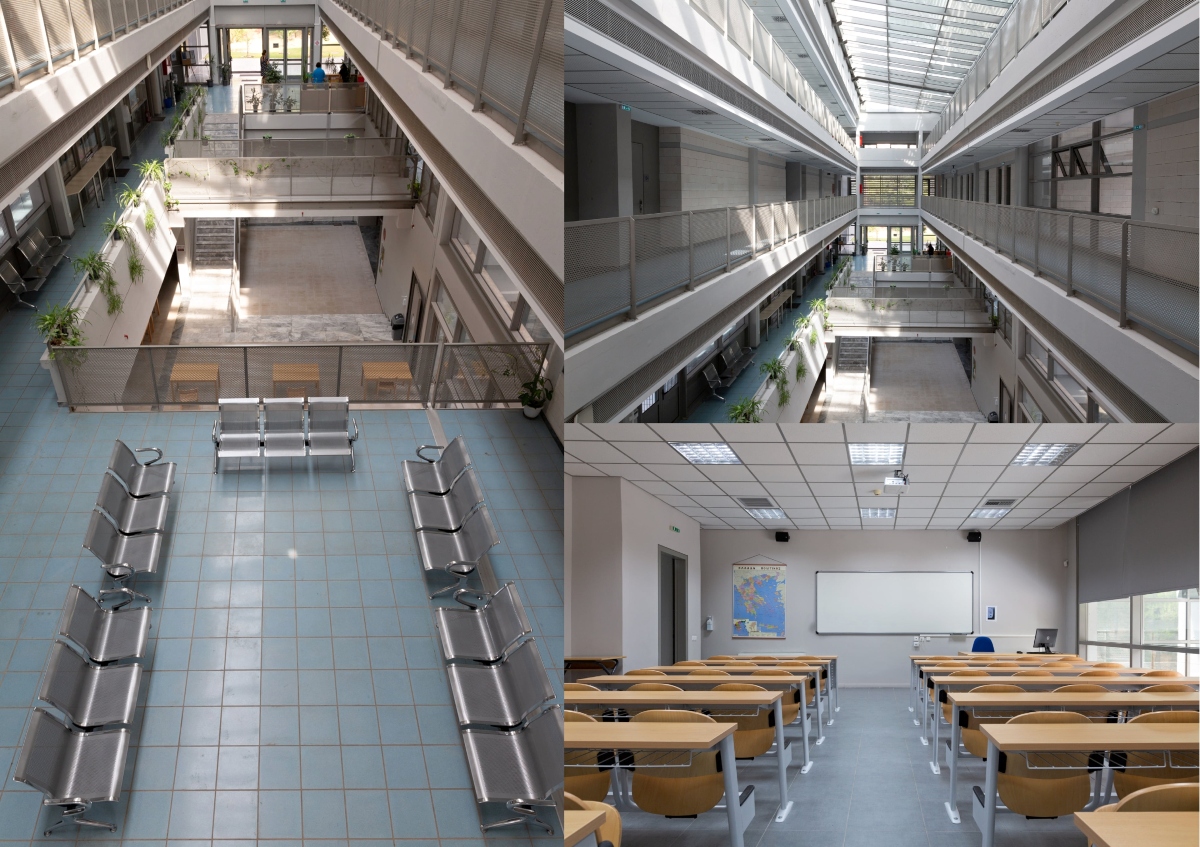 The Modern Greek Language Teaching Center was established as an independent institution, placed under the auspices of the Interdepartmental Programme in 1994. A new building was later constructed in the University’s campus to house the Centerand host its many students. Since August 2019, the Modern Greek Language Teaching Center is an independent and autonomous academic unit, administered by a five-member Administrative Board.
The Modern Greek Language Teaching Center was established as an independent institution, placed under the auspices of the Interdepartmental Programme in 1994. A new building was later constructed in the University’s campus to house the Centerand host its many students. Since August 2019, the Modern Greek Language Teaching Center is an independent and autonomous academic unit, administered by a five-member Administrative Board.
Aside from teaching Greek, the Center also offers courses on basic aspects of Greek culture. Many of its graduates went on to become teachers of Modern Greek in universities around the world, members of the diplomatic corps or scientists, or work in business. The programs are also aimed at immigrants and asylum seekers in Greece, and generally at foreigners who live permanently in Greece. More than 50,000 people from 153 countries have graduated from the “Didaskaleio” to date, with about 500 new graduates annually.
 Why learn Modern Greek?
Why learn Modern Greek?
Although Modern Greek is a language spoken only in Greece and Cyprus and in the Greek diaspora communities around the world, many people are interested in learning a language that has continuously developed from antiquity to the present day and is the origin of many words in most Western languages.
Learning modern Greek allows any student to come into contact with the origins of Western civilization, but also with the great civilization of Greek antiquity, without ignoring the value and importance of the culture of modern Greece, but also the opportunities offered regarding studies, employment, research or business in a member country of the European Union which is also experiencing significant economic growth.
Learning Modern Greek in Greece also offers students the opportunity to interact with teachers and other students of different backgrounds, ages, education and interests. Most importantly, students have the opportunity to learn and speak the language in a natural environment, to get to know the country better and to appreciate the culture and Greek way of life.
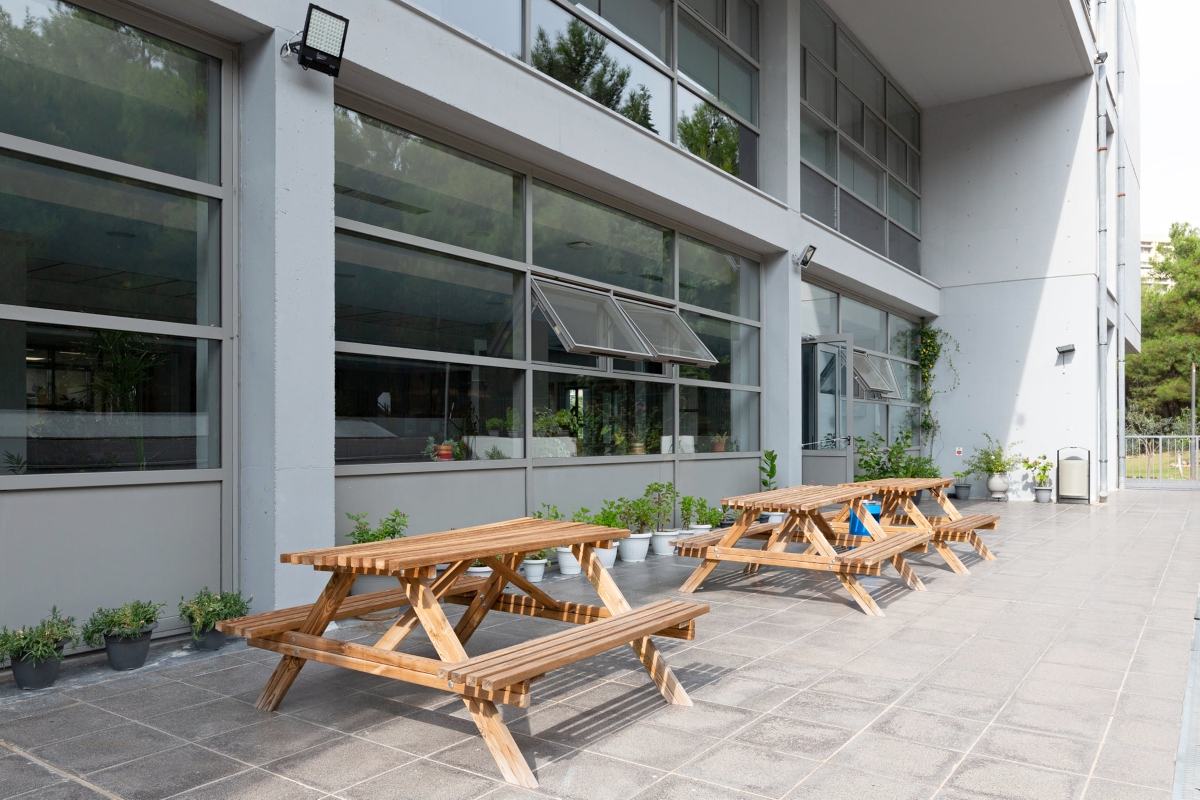 The programs and objectives of “Didaskaleio
The programs and objectives of “Didaskaleio
“Didaskaleio” aims at the promotion of the Greek language and culture through the following objectives:
- Teaching Modern Greek as a second (foreign) language
- Providing certification of the level of knowledge of Modern Greek as a second (foreign) language
- Introducing foreign students to various aspects of Greek culture
- Practical training of students in the Master’s program for teaching Modern Greek as a second (foreign) language
The university offers programs of various lengths (eight-month, six-month and three-month courses), with different levels of knowledge (beginner, intermediate and advanced), different class hours (morning, noon, afternoon or evening classes) and intensity (intensive or less intensive courses). Before the beginning of the course, students must take a placement test which will allow them to be placed in a class according to their level of knowledge of the Greek language. Courses start in October, December or February. There is also a program for ERASMUS students and a summer course for the months of June-July.
The courses are divided into levels of language knowledge, according to the Council of Europe’s levels. Once students have completed their course at a given level (A1, A2, B1, B2, C1 and C2), they are able to understand, write and speak at the level they have reached at the end of the lessons. The exams for the Certificate of Knowledge of Greek are held in May and September. They are open to students who are taking courses at the Greek Language Teaching Center (after declaring their intention to do so) as well as to those who wish to obtain the Certificate of Greek Language Knowledge. The Certificate of Greek Language Teaching is awarded to each participant who passes the oral and written exams and is equivalent to the Vantage / Upper Intermediate level (level B2) of the Council of Europe.
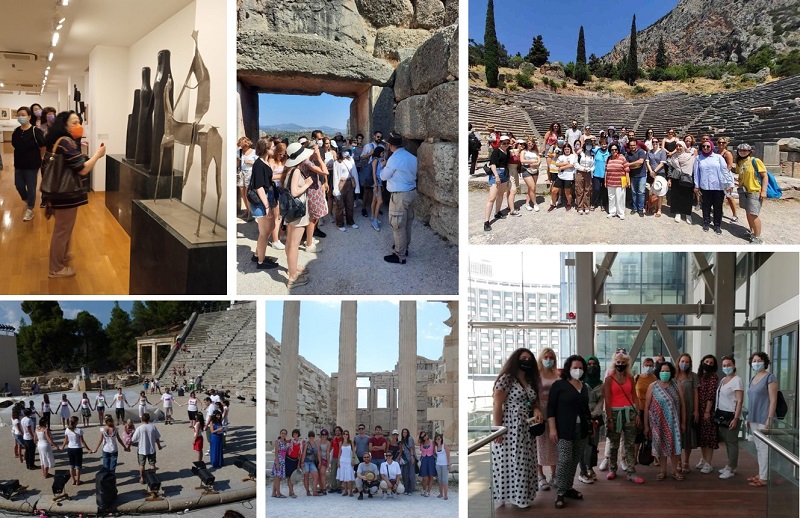 Cultural events and other activities
Cultural events and other activities
Every month “Didaskaleio” organizes visits to museums and archaeological sites as well as trips to sites of historical interest (Sounion, Delphi, Mycenae, Epidaurus, Nafplio). The guided tours take the form of courses according to the level of the students (beginner, intermediate and advanced). Students are prepared for these trips with printed and illustrated material, vocabulary exercises, historical references and pre-class discussions. Thus, these events are integrated into the main program.
Visits to museums and various cultural foundations as well as film screenings are organized to give students a better understanding of Greek history and culture (the Acropolis, the Acropolis Museum, the National Archaeological Museum of Athens, the Ancient Agora of Athens Museum, the Museum of Cycladic Art, the Benaki Museum, the Byzantine Museum, the Museum of Greek Folk Art, the National Gallery, the Theocharakis Foundation etc.).
Θ.Υ.Ε.Σ.Π.Α. Summer Course in Modern Greek Studies
The “Θ.Υ.Ε.Σ.Π.Α.” Summer Course in Modern Greek Studies was established in 1988 in celebration of the 150 years of the founding of the National and Kapodistrian University of Athens, following a decision by the University’s Senate. The program’s purpose is to familiarize foreign students with Modern Greek culture, comprising not only the language but also literature, history and art. It is aimed at undergraduate or postgraduate students and members of teaching staff of departments at foreign universities which teach subjects related to Greek Studies. It is the largest program of its kind in Greece and has so far hosted over 6,500 students from around the world.
Θ.Υ.Ε.Σ.Π.Α. lasts six weeks (June-July) and involves intensive teaching of the Modern Greek language, along with lectures on Modern Greek literature and history, and a special seminar for teachers on new methods for teaching Modern Greek as a foreign language. The program also includes visits to archaeological and cultural sites. The program is supported by the School of Philosophy and the “Didaskaleio” Modern Greek Language Teaching Center.
Read also via Greek News Agenda: Common words you (probably) didn’t know were Greek – Part 1;Part 2; Part 3; Part 4; International Greek Language Day – Why we learn Greek; International Greek Language Day – A journey through Greek poetry; Sofia Deligiorgi on Promoting Greek Language, Literature and Culture in Albania
N.M. Translated from the original article which appeared on Grèce Hebdo

